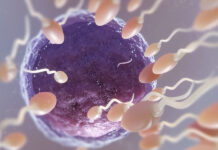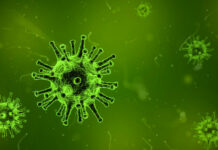The question about whether being HIV-positive increases male sexual behaviour is one that has been swirling around for some time now, so researchers decided to find out whether this is the case using data captured from previous studies that have explored this subject. The outcome of this study was published by Evolution, Medicine, and Public Health in 2020, with some interesting findings. HIV/AIDS research has been taking place for over 40 years, with a considerable amount of time and money spent over this period of time, which has still left us without a cure, but we do have various effective treatments that are able to successfully manage the disease.
Back in 2000, it was speculated by Sparks and others that HIV infection could alter host behaviour that facilitated the spread of the virus. HIV is a very sophisticated virus, where it’s able to mutate and continue to evolve over time, which is one of the reasons why it has been difficult to find a cure, since there are multiple strains and elements that require researchers to get themselves one step ahead of how the virus operates to find a successful cure for those who want it. 5 studies support the hypothesis that the early stages of being HIV-positive can result in an increase in male sexual behaviour, with the 2020 findings showing a “subtler effect, mediated by unconscious processes”.
Researchers found that male sexual behaviour increases nonlinearly with HIV viral load at the beginning of HIV infection, which is when the virus is the most infectious, and when viral loads increase. This can result in individuals having more sexual partners and more frequent risky sexual encounters, which benefits the virus, as this behaviour can help HIV spread more quickly at a time when individuals are more infectious. As the viral load increases, so does the male sexual behaviour. Once a person has been infected with HIV, the virus goes off in pursuit of infecting more CD4 cells so it can thrive and become more stronger, so with the body being able to potentially increase male sexual behaviour, the virus is not only replicating inside the infected individual, the virus is also helping the host to spread the virus to other individuals through this altered behaviour.
Research is pointing to this primarily happening at a particular stage of infection, which is during the acute infection stage that happens around 2 to 5 weeks after transmission, with HIV-specific antibodies commencing around 3 to 4 weeks after transmission. This is known as the window period, where the virus does not show up in HIV test results, but the virus can still be transmitted to other people during this time. The acute stage continues until the viral load is reigned in at its set point between 2 and 3 months after transmission, which happens after the initial spike that occurs for most newly infected people. So not only does the virus appear to increase male sexual behaviour at the early stage of infection, it’s also a time when individuals might not know they are infected and also when they are highly infectious.
It’s really important to note that these findings are based on a hypothesis, as it’s difficult to observe what happens before and after HIV infection, which is why these findings are not based on solid data, but instead a hypothesis. Researchers examined the sexual behaviour of HIV-positive individuals using self-reported data from 5 studies to explore this subject further. It is believed that the increased male sexual behaviour can also happen at a later stage of the virus when a person is not medicated and their viral load increases, but this particular research study focuses on the acute stage of infection. Here are some of the findings, which have been extracted from the report you can find at the end of this article.
- Davey and others found that men with acute HIV infection reported on average twice the number of sexual partners in the previous month compared to men with non acute HIV infections and condomless receptive and insertive behaviour was also more frequent when averaged over the previous 3 months for men with acute HIV infections.
- Braun and others found using the definition of condomless sex with an occasional partner, that risky sexual behaviour increased with 5-fold higher odds for those with acute HIV infections compared to those with non-acute HIV infections.
- Huerga and others found that men who were aware of their new HIV-positive status and who had a high viral load, were engaging in riskier sexual practices, which they defined as being inconsistent condom use during anal intercourse and having a greater number of sexual partners.
- Dukers and others found a relationship between the rate of unprotected sex and viral load in serum, with the rate of unprotected sex increasing from 30% to 80% when the viral copies per millilitre of blood increased based on their data set.
- Kalichman and others found that insertive sexual behaviour significantly increased with viral load in semen, with their analysis showing that having a greater viral load in semen relative to plasma was significantly associated with reporting a greater total number of unprotected sexual intercourse acts.
The findings in the 2020 report suggest that future research on sexual behaviour should examine semen viral loads in addition to blood viral loads, since these only weakly correlate. The report added that blood viral loads give a systemic view of infection, while semen viral loads are more predictive of sexual infectiousness. Based on this, researchers believe that semen viral loads may better predict behavioural manipulation compared to blood viral loads.
We hypothesize that during the acute and early stages of HIV infection, the virus manipulates host behavior such that it increases male sexual behavior, resulting in more frequent and riskier sex with more partners. While this topic may be perceived as controversial, and the topic of masculine behavior and HIV status complicated, the hypothesis rests upon established science. We are in no way implying that HIV+ individuals exhibit glaring changes in behavior, however: Our hypothesis suggests a much subtler effect, mediated by unconscious processes.”
Starks, Kelsey, Rosania and Getz
As this article is based on data extracted from the 2020 research study, it’s important for you to read the source article to ensure you consider everything in full context. As it can be difficult to measure sexual behaviours based on solid data, please be mindful that these studies are based on hypothesis using self-reporting data and further research needs to be undertaken, which can still have limitations due to it being difficult to measure a persons behaviour before they are infected. The study also considered findings based on established science involving the alteration of host behaviour by infectious agents. One way more solid data could be collected is through bug chasers participating in research studies, however, this might be considered unethical by some, if not many research organisations.
If you are HIV-positive, please consider participating in the poll below and if you’re wanting to add more details about your personal experiences with being HIV-positive, please also leave a comment below, such as whether you have experienced more intense sexual encounters after becoming HIV-positive or whether this has influenced your sex drive in any way. As this research data focuses on acute HIV infections, please also leave a comment if you were infected some time ago and have a high viral load (HVL), as it’s believed this may also influence male sexual behaviour, but this has not been researched as extensively.
Source and Further Reading:
Featured Photo: Image by Freepik.
Article ID: CC071
Version Control: 1.0 – November 8, 2023: Original article published.








I very much noticed this change. And when I was on meds, my sexual needs went vacant. That’s why I don’t use them. I love how sexual I am now.
i think there is something to this. Whenever I’ve had conversations with HIV poz guys and especially the ones who are highly toxic (high viral load), they say that since they’ve converted they stay horny and hard all the time and it’s almost like they can feel the hiv making them feel that way when it runs through their system. Some have said they feel sexual freedom and feel more confident and powerful. The ones who become more wasted feel like they look sexier also It seems.
That said, I recommend that not be your reason to get infected with HIV.
Very interesting article. I have a friend that, after getting infected actually started to have a lot more sex, bareback especially (consentually, as far as i know). But it seemingly also became more easy for him to find sexual partners when going out. So maybe it does something with pheromones of those infected as well? It might also be, because he is simply a little bit more sexually aggressive and direct, but we are both not sure. His sexdrive absolutely increased.
Good read, thank you!
Clever little bug. Most other viruses (although somewhat clever in their own way) rely on bodily immune response… expulsion of viral copies into the air through sneazing or out of blistering sores etc. etc… but these viruses don’t increase the social behaviours of their host/foodsource to help them encounter new sources as does HIV… working with an innate inteligence at increasing the primordial lust instincts and animalistic behaviours of it’s host through hormonal changes… yet (most clever of all) only doing so when it’s armies are large enough and weaponised enough (high viral load count) to ensure the “destruction” of any new potential hostiles (cum-absorbers) encountered. HIV has a right to life people!! Wonderful clever little bug.
Also explains why wasted guys are soo attractive. We are drawn to the virus
The virus infected a the host and changes his sexual drive changing him into a gift giver. Very powerful stuff. The virus makes you want to infect others. It’s no wonder hiv is everywhere you can’t fight it
I found that when I thought that I had HIV I became a very active top and fucked a lot. It was a great desire at the time but I was not poz and I went back to chasing as a bottom
If it does how come so hard to find a gifter as me and wife been chasing for some time we are both bb swingers and not got one std yet and she’s had over 200 men in the 2 years been swinging I had 4 men and they made out they was poz as did not get it
Because it is still luck of the draw Liliwen. Exposure never guarantees infection. More to the point, the thinking is that HIV increases desire, not infection.
I think that is partly true, I would say it is hard in my area I had one guy told me to f*** off
Interesting. There is a sort of intelligence to HIV it seems. This article helped explain why I never experienced this during my own seroconversion. My peak VL was never very high to begin with. This likely explains why no FuckFlu, and why I didn’t get those peak conversion horns.
I don’t know not got it but been chasing it
How long have you been chasing ? Have you done anything to make it happen.
Thank you Jason!
You’re welcome Matt.
I wonder then if re-infection i.e. acquiring different strains of the virus would also increase that desire to become stronger and mutate and thereby increase the need to infect more. It is a very interesting and informative article. Thank you Jason!
This is a very good question Tom and I would be interested to know the answer myself. Everything in this research appears to be related to viral load, so I’m thinking anything that contributes to the viral load increasing might contribute to an increase in sexual behaviour. I’m glad you enjoyed reading this article Tom.
Well, that was an interesting read! If only it hypothesised that the heightened sexual drive endured …
This phrase stood out for me – “a successful cure for those who want it” … obviously, for many, the need to have HIV in them is paramount, and most would choose to eschew any cure.
However, if the hypothesis explored by the article/paper is true, what an interesting roller-coaster it would be to alter infection/cure in anticipation of re-experiencing that heightened sexual drive.
This was a great research study Dec and I look forward to further research in this area. The source article indicated that there is possibly a similar increase in male sexual behaviour for those who are not medicated as well when their viral load increases, but the researchers didn’t focus on this aspect, they instead focused on recently infected individuals. I wonder if they did this on purpose, because if research found that those who leave their HIV untreated and the increasing viral load resulted in higher levels of risky sex and numerous sexual partners, then this could result in an increase in HIV infections. I’m hoping some who are HIV-positive will leave a comment at the end of this article to help us gather more insight into this, as it would be very interesting to know. Thanks for reading this article Dec and for your comment too.